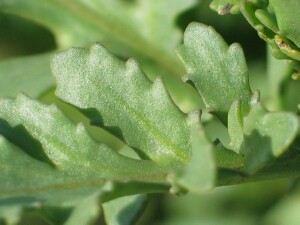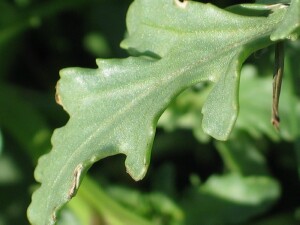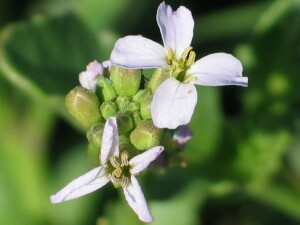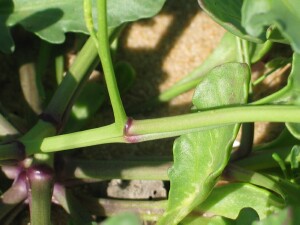Sea Rocket
Back | Salinity Indicator Plants Home | Common name home | Scientific name home | Photo Gallery | Glossary
| Sea Rocket photos | Family: Cress (Brassicaceae syn. Cruciferae) |
| Scientific Name: | Cakile edentula and Cakile maritima | 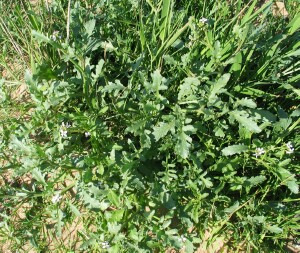 Sea Rocket plant Photo: A J Brown | |||||
Status: | Cakile edentula is native to the east coast of North America and C. maritima to Europe and the Mediterranean. Both species are naturalised and often coextensive in Victoria, New South Wales and Western Australia, while the former is also recorded in Queensland and Tasmania and the latter in South Australia. | ||||||
Plant Description: | Herbs to 80 cm high, branching extensively and sometimes spreading along the sand (though not rooting). Leaves are ovate to spatula-shaped, 4-7 cm long and variously lobed. Flowers are white, pink or lavender with four petals 4-8 mm long. Fruit is a silicule 12-27 mm long and 4-8 mm wide on an 7-8 mm long stalk. The main differences between the species relate to fruit shape. In Cakile edentula, the upper segment of the fruit is 7-15 mm long, top-shaped and 4-angled, while the lower segment is 5-10 mm long and more or less cylindrical and much narrower than the upper segment. In C. maritima, the upper segment is a compressed conical shape with 4 obvious angles, while the lower segment is almost as wide as the upper and bears 2 lateral blunt horns towards its top. | ||||||
Habitat: | Common in sand dunes and on interdune flats. Very tolerant of salinity and salt-spray. Growth is stimulated by both salinity (i.e. a true halophyte) and sand burial.
| ||||||
Comments: | Both species appear to have similar tolerance levels to salinity, although research in America has shown that C. maritima can survive better on foredunes than C. edentula. Useful plants for stabilising sand dunes. |
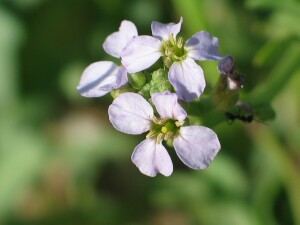 Sea Rocket flowers Photo: A J Brown | 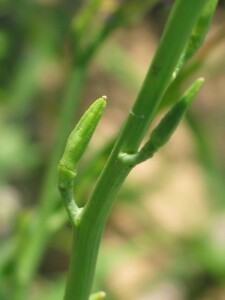 Sea Rocket fruit Photo: A J Brown |
|
|
|
|

